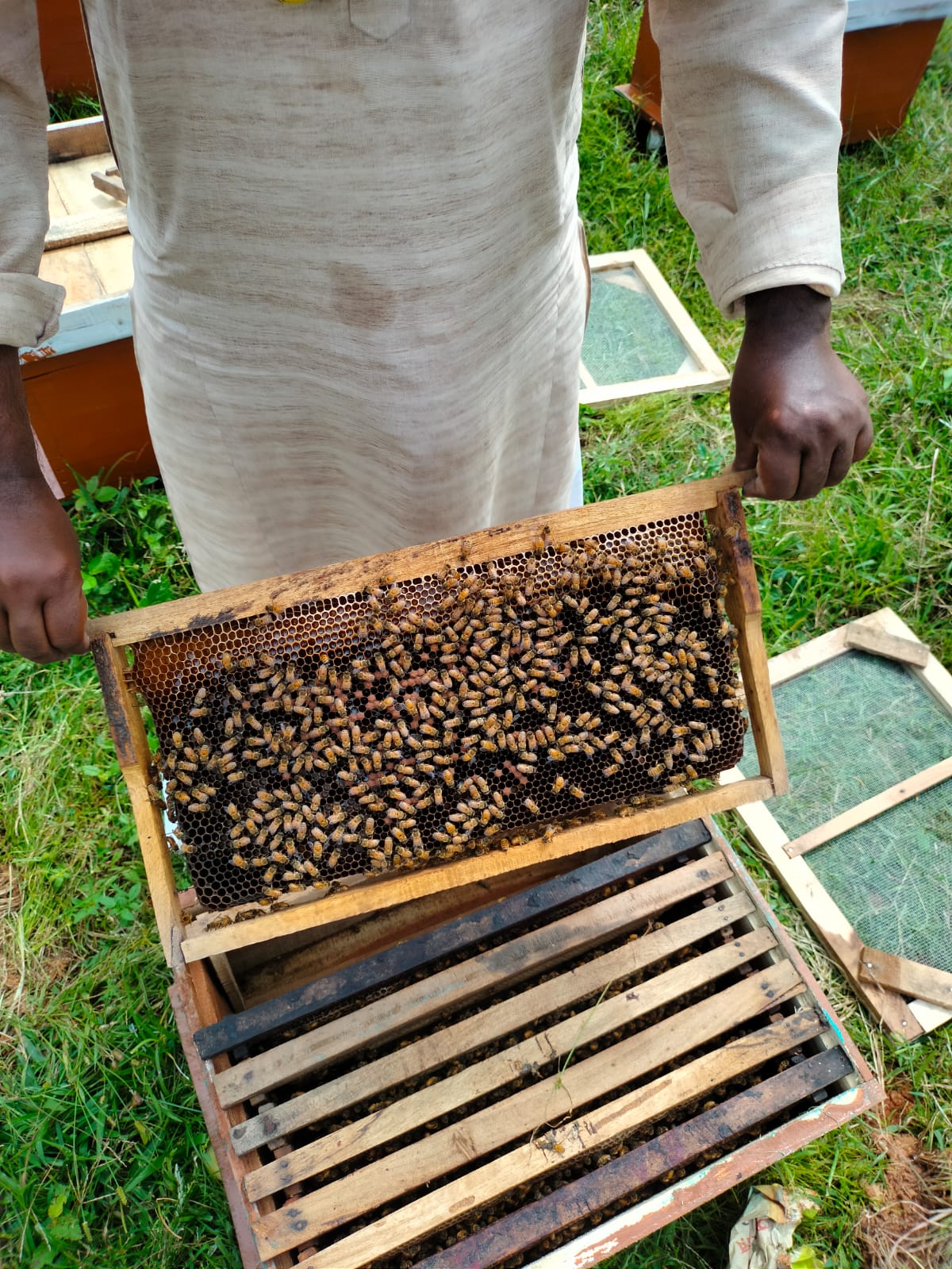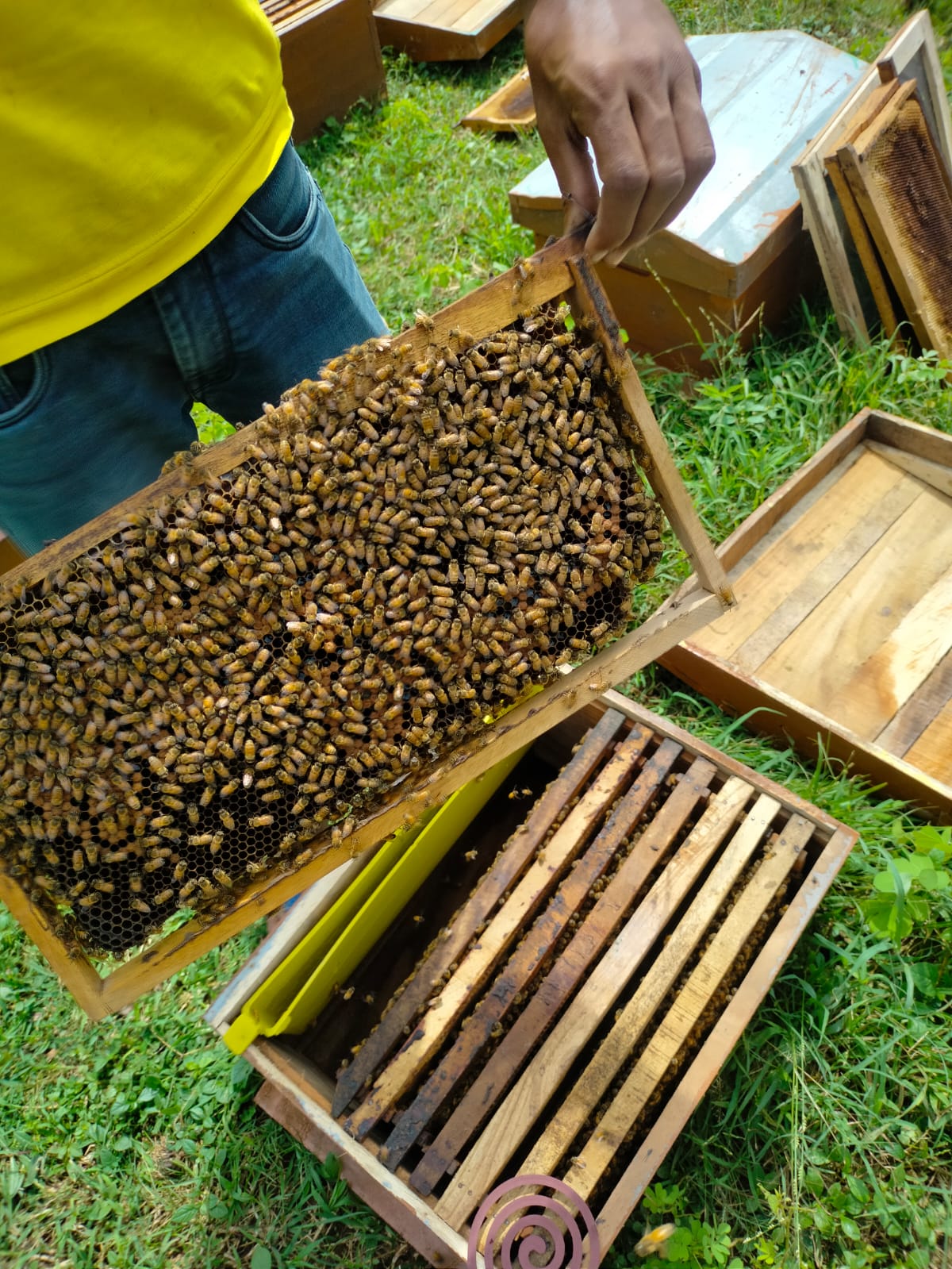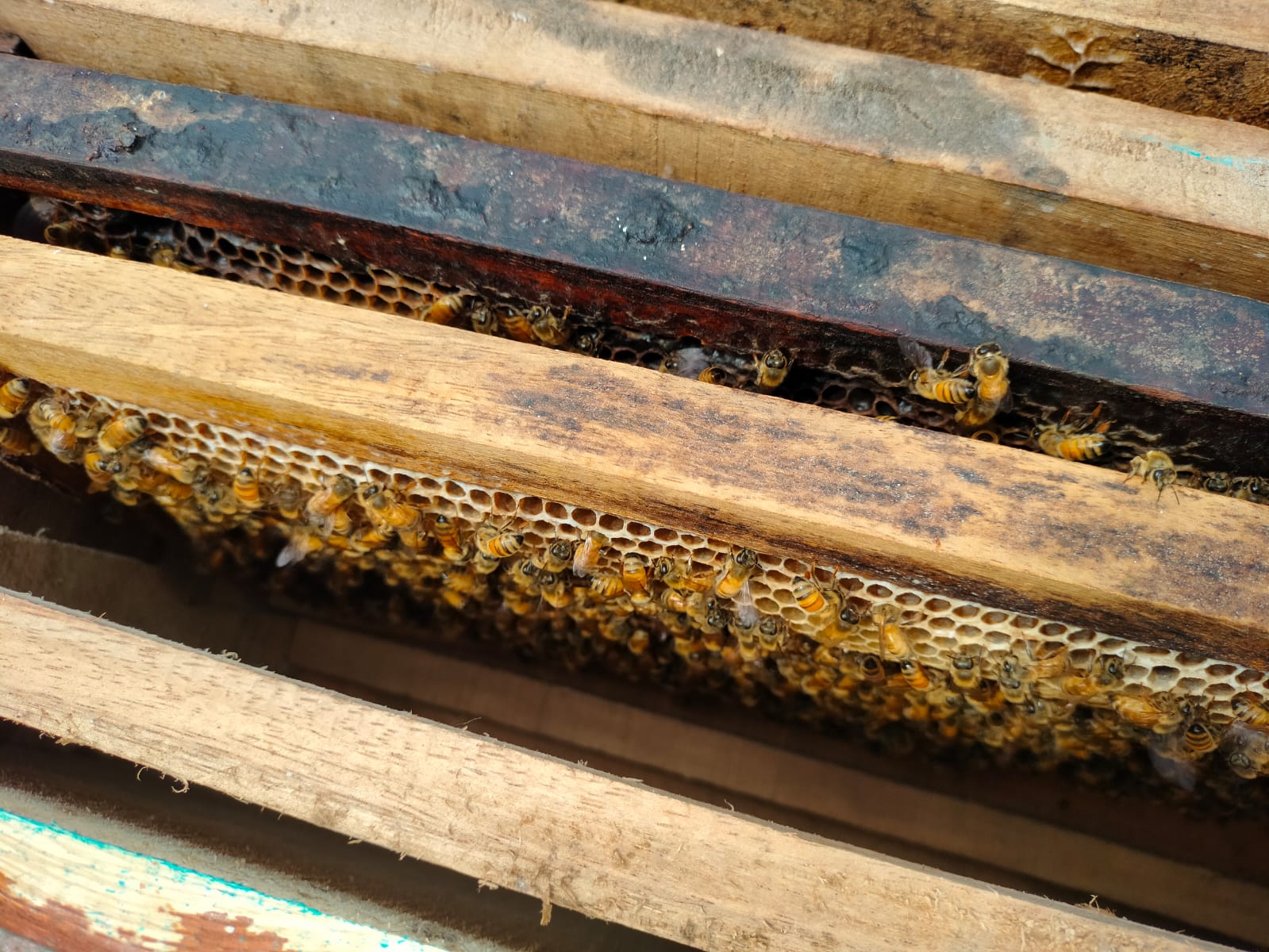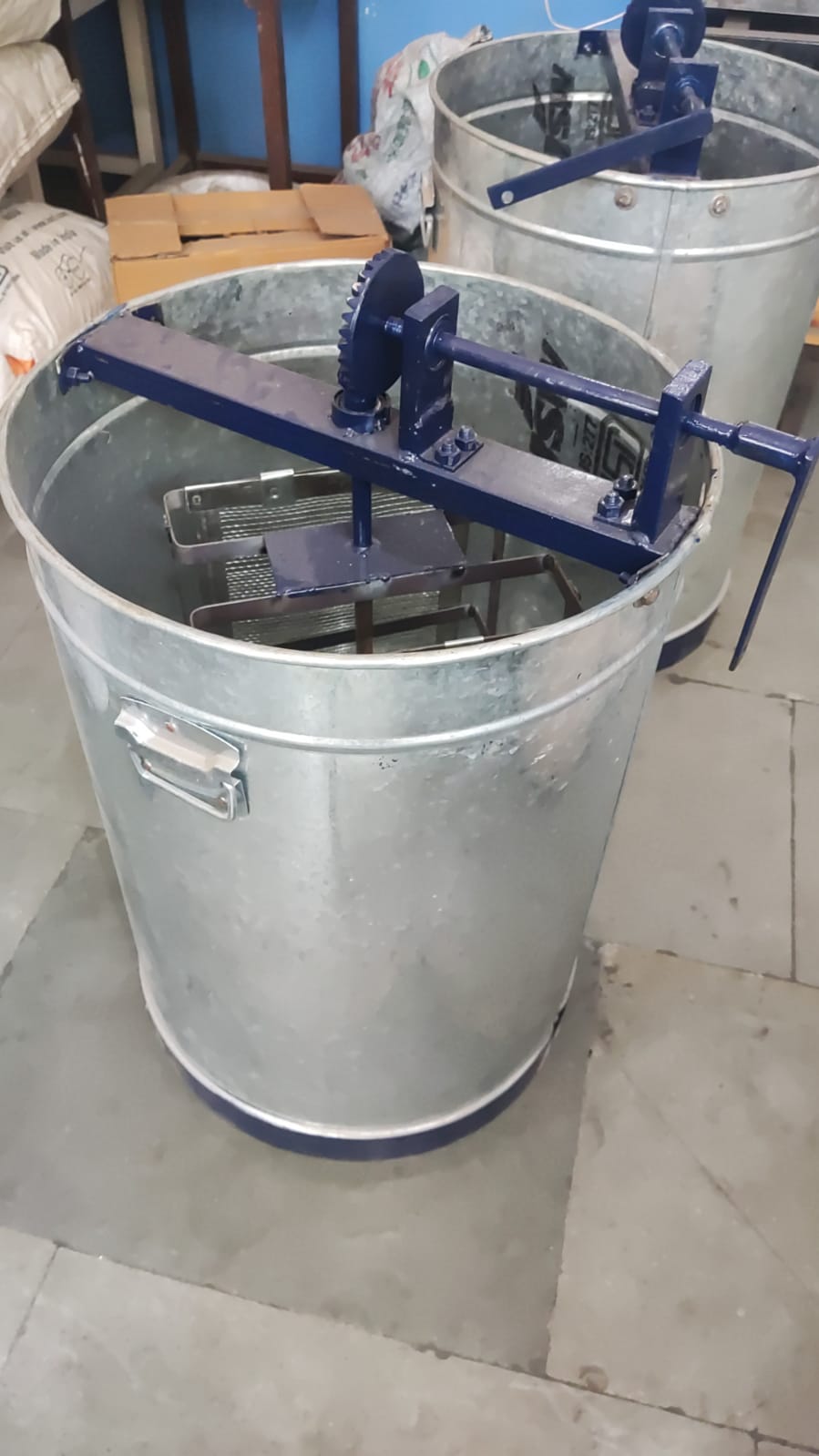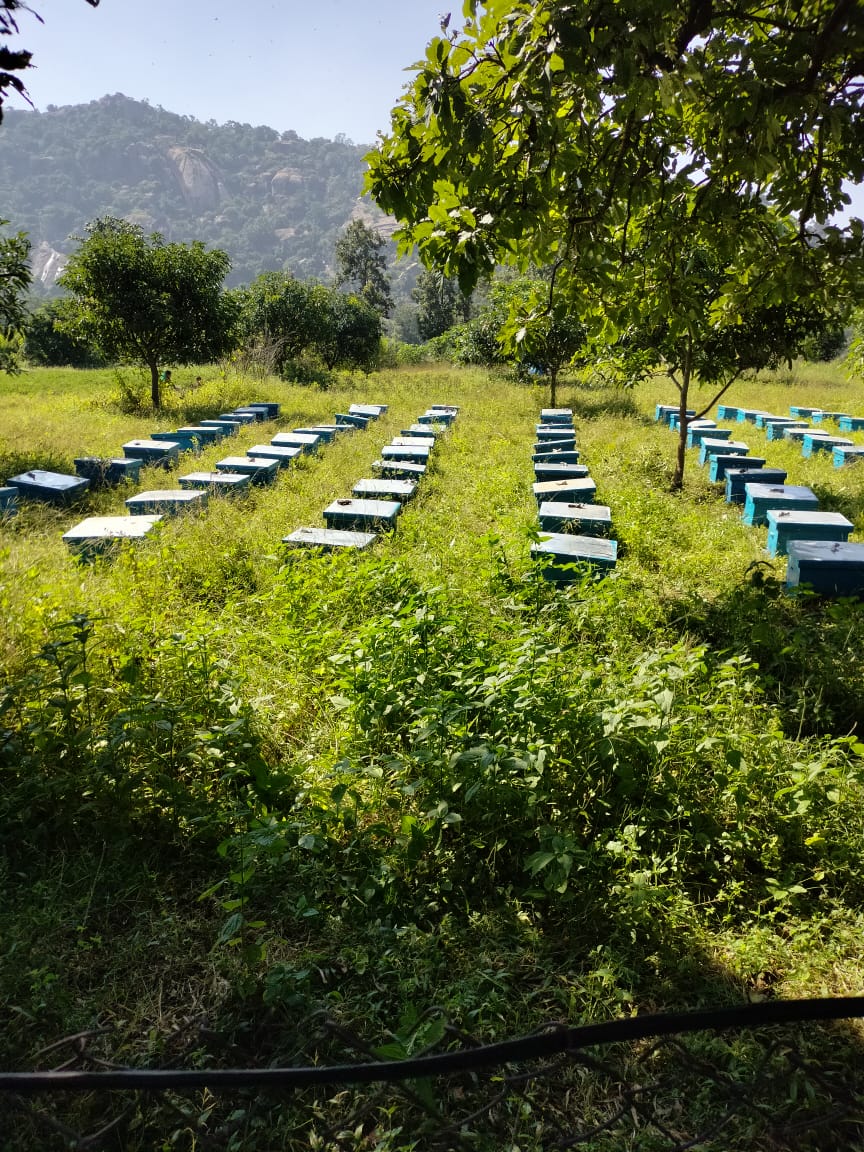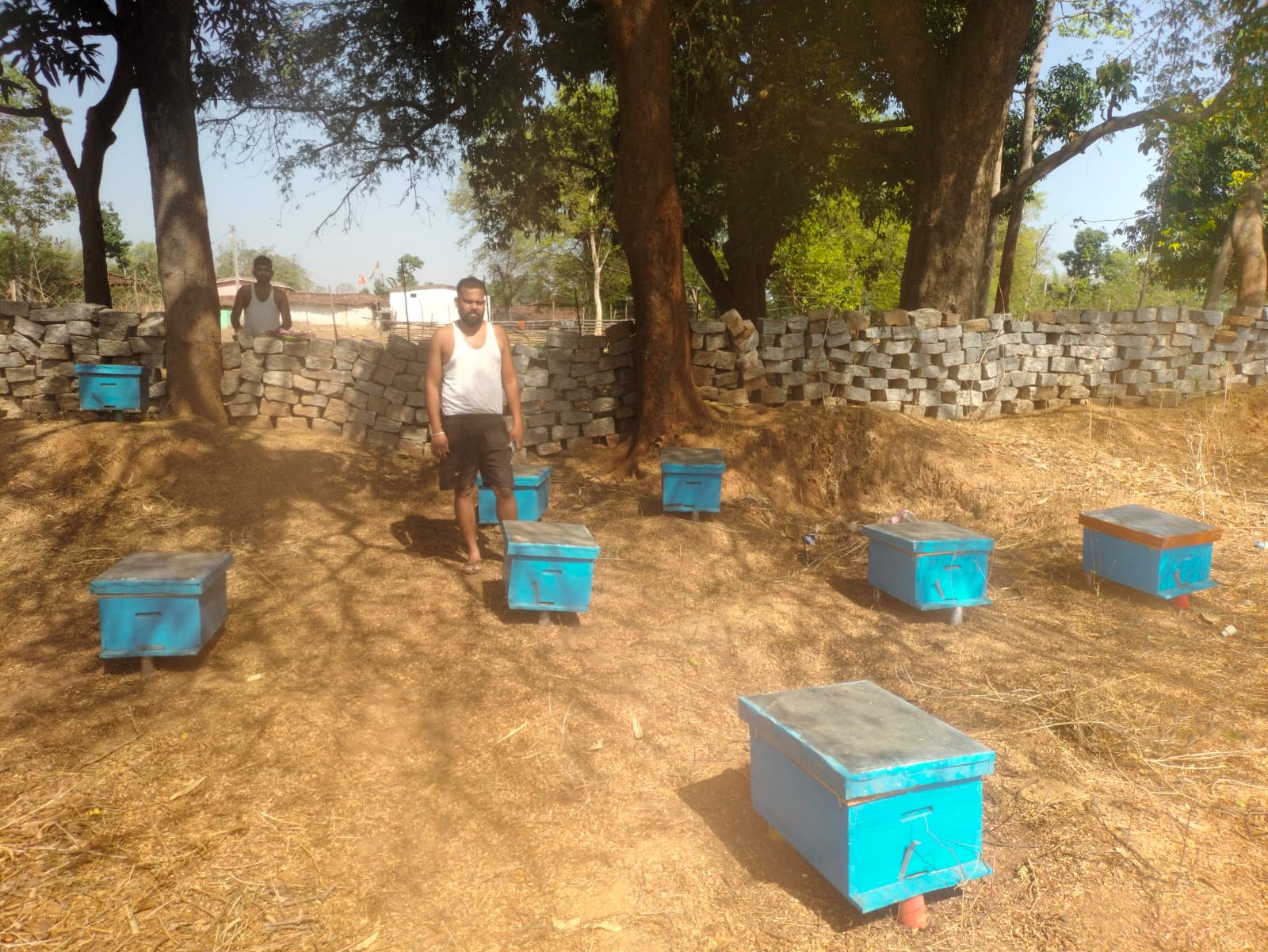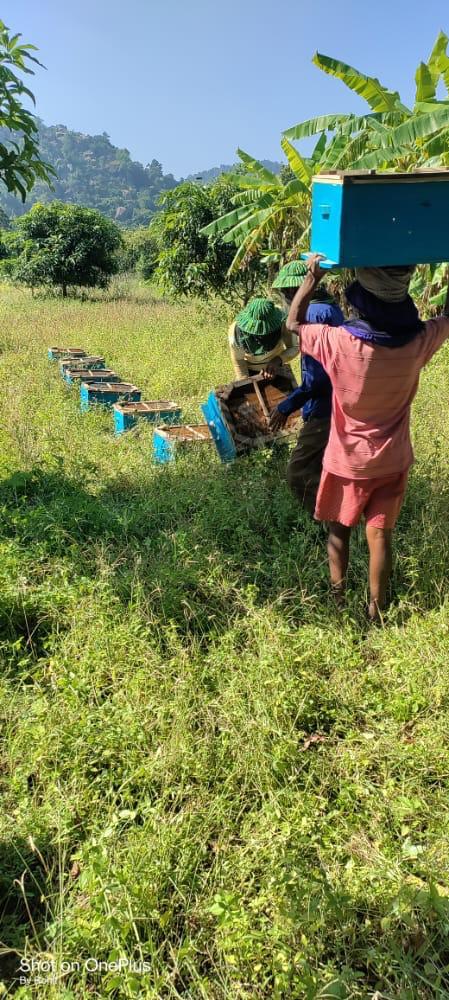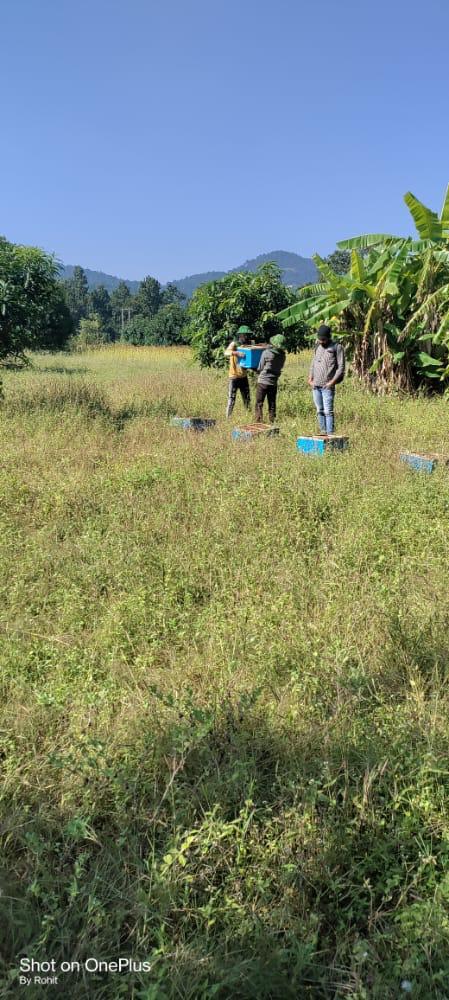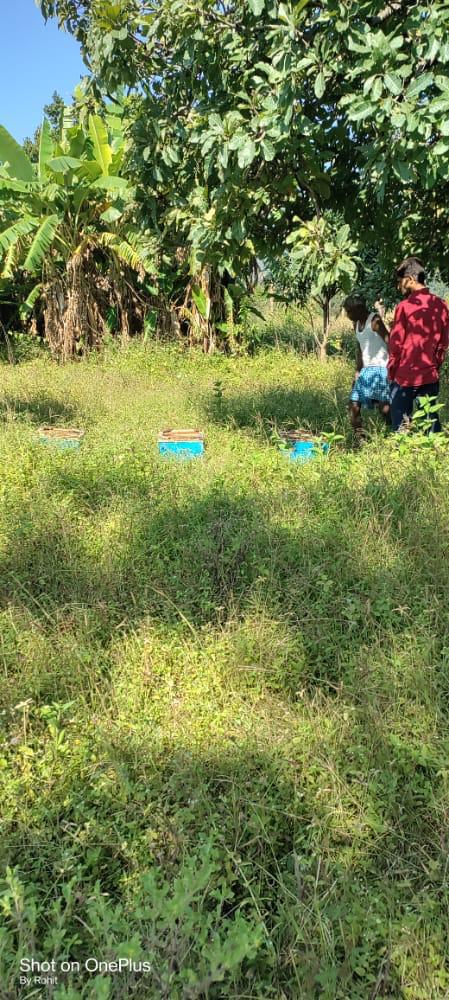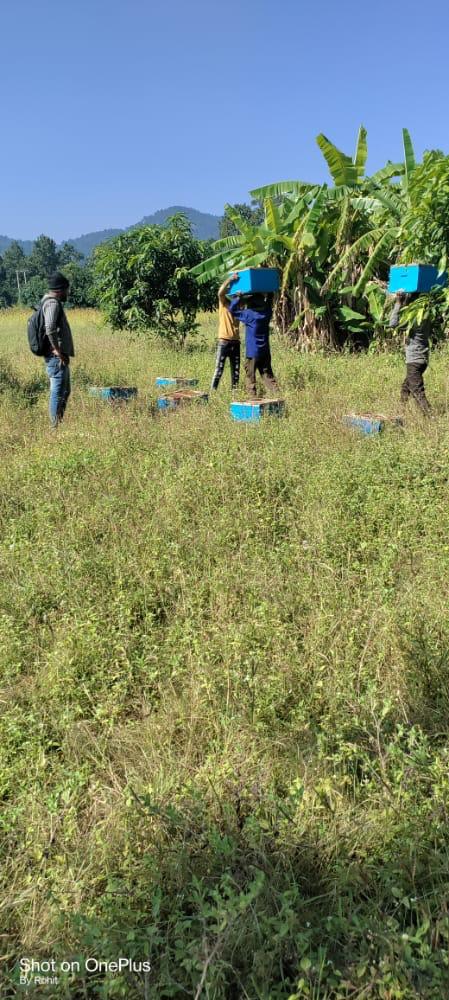Honey bee farming, also known as apiculture, is the practice of raising honey bees to produce honey, beeswax, royal jelly, pollen, and other bee-related products. It is an essential agricultural activity that not only yields valuable products but also plays a critical role in pollination, benefiting agriculture and ecosystems. Here are the key aspects and benefits of honey bee farming: Honey Production: The primary product of honey bee farming is honey. Honey bees collect nectar from flowers and convert it into honey through a process of regurgitation and evaporation. Honey is a natural sweetener and has various culinary and medicinal uses. Beeswax Production: Honey bees produce beeswax, which is used in various applications, including making candles, cosmetics, and skincare products. Royal Jelly and Pollen: Beekeepers can also harvest royal jelly and bee pollen from beehives. Royal jelly is a nutrient-rich substance fed to the queen bee, while bee pollen is a source of protein and other essential nutrients. Pollination Services: Honey bees are essential pollinators for many crops and flowering plants. Beekeeping helps support pollination, leading to increased yields and better fruit and seed production in various agricultural crops. Biodiversity and Ecosystem Support: Honey bee farming contributes to biodiversity and ecosystem health by supporting the pollination of wild plants and contributing to overall ecosystem balance. Income Generation: Beekeeping can be a source of income for individuals and communities, especially in rural areas where it is practiced as a livelihood activity. Sustainable Farming: Honey bee farming is generally considered a sustainable agricultural practice. It does not require extensive land use, and the bees primarily rely on natural resources like nectar and pollen from flowering plants. Educational Value: Beekeeping provides educational opportunities for understanding the complex and fascinating behavior of bees and their importance in the natural world. Honey Bee Products in Cosmetics and Medicine: Honey, beeswax, royal jelly, and other bee products are used in various cosmetic and medicinal formulations for their beneficial properties. Conservation Efforts: Beekeepers often contribute to conservation efforts by promoting bee-friendly practices, such as planting bee-friendly flowers and avoiding the use of harmful pesticides. However, honey bee farming also faces challenges, including threats from pests and diseases like Varroa mites and colony collapse disorder. Beekeepers need to implement proper management practices and be vigilant in monitoring hive health to ensure the well-being of their colonies. Overall, honey bee farming is a valuable and rewarding agricultural activity that not only provides important products but also plays a crucial role in supporting biodiversity, food production, and environmental health.

